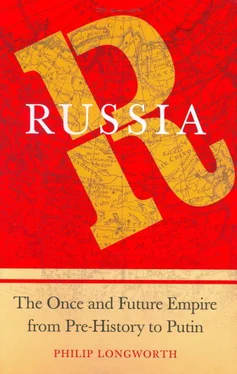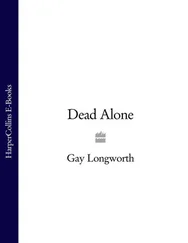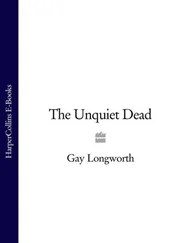10. Quoted by David Remnick reviewing F. Chuyev’s interviews with Molotov and Ligachev’s autobiography in New York Review, 25 March 1993, pp. 33-8.
11. From this point on the text reflects BBC transcripts of broadcasts from the Soviet Union and the Bloc countries, SU/0472 i etc. and EE/0457 etc.
12. Gorbachev, 28 March 1989, BBC, SU 0419 i.
13. Gorbachev, 18 July 1989, BBC, SU/0515 C1/1-4, 22 July 1989.
14. BBC, SU/0527 i and 0536 i.
15. BBC, SU/0528 c1/1-6/.
16. I have told the story before in Longworth, The Making of Eastern Europe, pp. 12-15.
17. Interview of 25 February 1991 reported in the press.
18. Private communication confirmed by another eyewitness.
19. See A. Stent, Russia and Germany Reborn: Unification, the Soviet Collapse and the New Europe (Princeton, 1999), esp. pp. 11ff.
20. The point is suggested by M. Malia, ‘The August revolution’, NewYork Review, 26 September 1991, pp. 22—6. The account of the coup which follows also draws on this source, though the interpretation of events is mine,.
21. Service, Twentieth-Century Russia, p. 495. Service provides an account of the last days of the old regime which is sympathetic to Gorbachev.
22. For a useful summary of the economic decline and the political collapse consequent upon it, see the Quarterly Reports issued by The Economist’s Intelligence Research Unit for 1990 and 1991.
23. Tuminez, Russian Nationalism since 1856, pp. 239, 241.
24. See A. Brown, The Gorbachev Factor (Oxford, 1996).
1. Stent, Russia and Germany Reborn, p. 211.
2. J. Stiglitz, Globalization and its Discontents (London, 2002), p. 56. Generally on the reforms see R. Service, Russia: Experiment with a People (London, 2002), ch. 9.
3. The Times, 18 July 2001, p. 20.
4. Stiglitz, Globalization and its Discontents, p. 139.
5. S. Cohen, Failed Crusade. America and the Tragedy of Post-Communist Russia (New York, 2000), p. 150.
6. P. Klebnikov, Godfather of the Kremlin (New York, 2000), is informative on the subject, particularly the links with the ‘Chechen mob’. The author was subsequently murdered.
7. J. Nell and K. Stewart, Death in Transition: The Rise in the Death Rate in Russia since 1992, UNICEF Occasional Papers: Economic Policy Series, no. 45 (Florence, 1994), pp. 36, table 22, pp. 20, v, 12-13.
8. B. Kagarlitsky, Restoration in Russia: Why Capitalism Failed, trans. R. Clarke (London, 1995), p. 24.
9. R. Medvedev, Post-Soviet Russia (New York, 2000).
10. Service, Russia: Experiment with a People, p. 107.
11. See Klebnikov, Godfather of the Kremlin, pp. 200-210 passim.
12. Ibid., pp. 135, 325.
13. Personal observation.
14. Service, Russia: Experiment with a People, p. 156 and passim. On the connections with organized crime, its abetters among Russian officials, and with Boris Berezovskii see also Klebnikov, Godfather of the Kremlin, pp. 40—2.
15. For an account of the war see A. Lieven, Chechnya’Tombstone of Russian Power (New Haven, 1998).
16. Rossiia v tsifrakh (Moscow, 1997), p. 262; Financial Times, 18 December 1996 and 22 and 24 January 1997.
17. G. Smith, ed., State-Building in Russia: The Yeltsin Legacy and the Challenge of the Future (New York, 1995), pp. 217-25.
18. See G. Derluguian, ‘Che Guevaras in turbans’, New Left Review, 237 (September/October 1999), 3-27.
19. Klebnikov, Godfather of the Kremlin, p. 265.
20. For a full account of the election and the means by which it was won based on the researches of an able journalist, see ibid., ch. 8.
21. The lower estimate is cited by Service, Russia: Experiment with a People, p. 156, the higher by Klebnikov, Godfather of the Kremlin.
22. For reports on the Latvian issue, see Reuters reports, 9 March 1998. More generally, see J. Taylor in Atlantic Monthly, February 2002, pp. 69ff.
23. Stiglitz, Globalization and its Discontents, p. 145 et seq.
24. Kagarlitsky, Restoration in Russia, p. 58.
25. The Swiss government was to issue a warrant for Borodin’s arrest on charges of money-laundering late the following year.
26. Cohen, Failed Crusade, pp. 136, 141.
27. B. Yeltsin, Midnight Diaries (London, 2000), p. 266.
28. Derluguian, ‘Che Guevaras in turbans’.
29. V. Putin, ‘Russia at the Turn of the Millennium’, has been translated as an appendix (pp. 209—19) to N. Gevorkian, N. Timakova, A. Kolesnikov [and V. Putin], First Person, trans. G. Fitzpatrick (London, 2000); see also L. Shvetsova, Putin’s Russia (New York, 2003), and Tuminez, Russian Nationalism since 1836, pp. 297-8.
30. B. Lo, Russian Foreign Policy in the Post-Soviet Era (Basingstoke, 2002), pp. 157-67.
31. O. Skrypnyk on the Senkus web site. Most other unreferenced sources in this chapter are from the press, particularly the Financial Times.
32. See the World Bank’s report From Transition to Development (New York, 2004).
33. See S. Kotkin, Financial Times Magazine, 6 March 2004, p. 19.
34. For an interesting, not unsympathetic, article on Khodorkovskii see C. Freeland in Financial Times Magazine, 1 November 2003, pp. 17—22. The business is still violent, however. The death of a London lawyer who headed Yukos’s holding company in an unexplained helicopter crash in March 2004 has been attributed to his reported willingness to co-operate with the prosecution — see Private Eye, 1102 (19 March 2004), 28.
35. For an example, see Freeland, Financial Times Magazine, 1 November 2003, pp. 17-22.
36. Lo, Russian Foreign Policy, p. 125.
1. Presniakov, The Formation of the Great Russian State, p. 381.
2. Against undertakings given by Washington and Bonn at the time, and against the advice of George Kennan, Paul Nitze and others — see Stent, Russia and Germany Reborn, p. 221.
3. Russian census statistics posted on UN website, 9 June 2004, p. 3.
4. As reported by J. Page in The Times, 27 May 2004, p. 50.
5. M. Walker in World Policy Journal, 11, 1 (1994), 1.
6. I. Prizel, National Identity and Foreign Policy: Nationalism and Leadership in Poland, Russia and Ukraine (Cambridge 1998), p. 272.
7. Personal communicaton of Dr V. Zhiromskaia at ELTE seminar, Budapest, May 2004.
8. R. Allison, ‘Regionalism, regional structures and security management in Central Asia’, International Affairs, 80, 3 (May 2004), 463-83.
9. A. Bohr, ‘Regionalism in Central Asia: New geopolitics, old regional order’, International Affairs, 80, 3 (May 2004), 485-502.
10. B. Lo, ‘The long sunset of strategic partnership: Russia’s evolving China policy’, International Affairs, 80, 2 (March 2004), 295-309.
Adlerfelt, G., The Military History of Charles XII (3 vols., London, 1740)
Agoston, M., ‘Voskovaia pechat’ Ivana III i497g’ [‘Ivan Ill’s wax seal of 1497’], in Gy. Szvak, ed., Muscovy: Peculiarities of its Development (Budapest, 2003)
Alekseiev, Iu., Gosudar’ vseia Rusi [Sovereign of All Russia] (Novosibirsk, 1991)
Allen, W. E. D., The Ukraine:A History (Cambridge, 1940)
ed., Russian Embassies to the Georgian Kings (1589-1605) (2 vols., Cambridge, 1970)
Читать дальше





![Stephan Orth - Behind Putin's Curtain - Friendships and Misadventures Inside Russia [aka Couchsurfing in Russia]](/books/415210/stephan-orth-behind-putin-s-curtain-friendships-a-thumb.webp)





